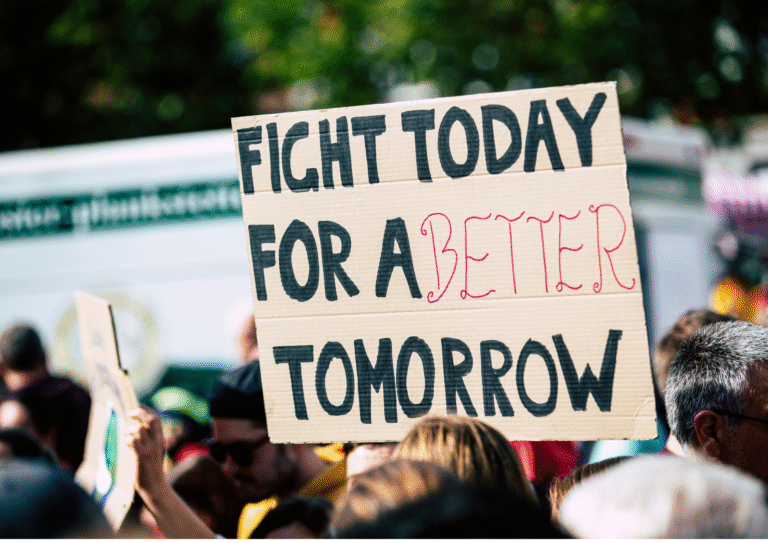
What if the air you breathe, the water you drink, and even the food you eat were slowly turning against you?
Climate change is no longer just a threat to our planet. It’s now a growing danger to our bodies… and the health systems we rely on.
This explainer on how climate change is affecting global health shows why protecting the environment is now a matter of life and death. Let’s break it all down in simple terms… and explore what it means for you, your family, and the future.
The Hidden Link Between Climate and Your Health
We often think of climate change as rising temperatures, melting ice caps, and polar bears on shrinking icebergs. But behind the headlines is a global health emergency that’s creeping into our daily lives.
Extreme heat, dirty air, contaminated water, and shifting disease patterns are just a few of the ways climate change is making us sicker. And if you think it only affects people far away in developing countries, think again.
A 2022 World Health Organization (WHO) report found that between 2030 and 2050, climate change is expected to cause approximately 250,000 additional deaths per year due to malnutrition, malaria, diarrhea, and heat stress. This is a staggering projection.
Source: World Health Organization (WHO) – Climate change and health (Published 30 October 2022)
But Wait… Isn’t Climate Change More of an Environmental Issue?
It’s a fair point. Many people assume climate change is all about the planet… not people. Some argue that human health systems are strong enough to withstand a little heat.
That’s understandable. After all, medicine and technology have come a long way. But here’s the truth:
Even the best healthcare systems can’t stop a heatwave or reverse a drought. And when wildfires spread, or mosquitoes carry new diseases into new regions, even wealthy countries are caught off guard.
Take Europe’s 2022 summer heatwave, which led to over 61,000 heat-related deaths, according to a study in Nature Medicine. That’s not just a climate story. That’s a public health disaster.
So, How Exactly Is Climate Change Making People Sick?
Here are four of the most critical health threats tied to climate change:
- Heatwaves and Heart Attacks Rising temperatures don’t just cause discomfort. They increase the risk of heart and respiratory problems… especially in older adults and children. “Extreme heat events can trigger cardiovascular failure,” says the U.S. CDC in their Climate and Health report.Source: Centers for Disease Control and Prevention (CDC) – Climate and Health (See relevant sections on extreme heat impacts)
- Air Pollution and Asthma Wildfires and pollution caused by climate shifts increase fine particulate matter in the air, leading to asthma attacks and lung disease. Air pollution already causes over 7 million premature deaths annually around the world.Source: World Health Organization (WHO) – Air pollution and health (Updated 22 March 2021)
- Unsafe Water and Disease Outbreaks Floods and droughts make it harder to access clean water. This leads to cholera outbreaks, diarrhea, and skin infections. In some areas, infrastructure can’t keep up with the environmental stress, making disease prevention harder than ever.
- Changing Disease Patterns Warmer temperatures mean mosquitoes, ticks, and other disease carriers are expanding into new territories. That’s why malaria, dengue, and Lyme disease are now being reported in regions that were once considered too cold for them. “Climate change is altering the spread of infectious diseases,” according to a 2022 article in The Lancet Planetary Health.Source: The Lancet Planetary Health – “The 2022 report of the Lancet Countdown on health and climate change: health at the mercy of fossil fuels” by Romanello et al. (2022)
A Quick Recap: What This Means for You
Even if you live in a city with clean water and modern hospitals, you’re not immune.
- Food prices rise when crops fail.
- Insurance rates go up after every natural disaster.
- Mental health declines when your environment becomes unstable.
So yes, climate change is a health issue. A very personal one.
A Darkly Funny Thought
At this rate, future doctors might prescribe “shade and an ice bath” instead of antibiotics. Or maybe ask, “Have you tried turning the planet off and back on again?”
Why This Matters More Than We Realize
The real danger? We’re not preparing for it.
Health systems around the world are already strained. When you add climate stress on top of that, even wealthy countries will struggle to keep up. And let’s not forget the disproportionate impact on low-income nations. In some areas, climate-related diseases are increasing faster than they can build hospitals.
Hope Is Not Lost: What Can Be Done?
The good news? We’re not helpless. Here’s what can make a real difference:
- Invest in climate-resilient healthcare. This means hospitals powered by clean energy, with backup water supplies and emergency protocols.
- Educate the public about climate health risks. Awareness saves lives. People need to know when to take shelter, boil water, or seek care.
- Reduce emissions and transition to renewable energy. It’s not just good for the Earth… it’s good for our lungs, our skin, and our hearts.
Final Thought: Health Is the Human Face of Climate Change
You might not see climate change. But you can feel it in the rising cost of food, in the quality of the air, and in your family’s well-being.
And if we don’t act now, we’ll spend more time in hospital waiting rooms than enjoying this planet.
“Climate action is health action,” says the WHO. It’s time to treat it that way.
This explainer shows why immediate action is critical to safeguarding future generations.
What Can You Do?
Talk about this. Share this blog. Support clean energy. Vote with health… and climate… in mind.
Because the next time you check the weather, it might not just be sunny or rainy. It might be life or death.




